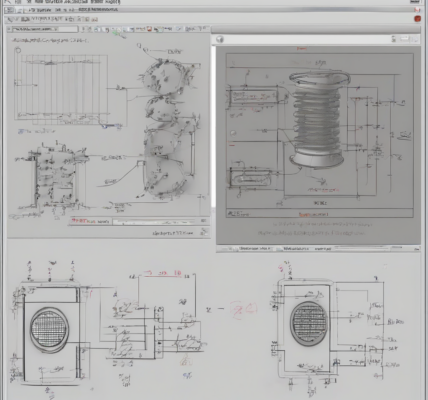Unveiling the Patriot Exchange Program: A Deep Dive into its History, Impact, and Future
The Patriot Exchange Program, while not a formally recognized or established program with a readily available, singular definition, represents a compelling concept ripe for exploration. This essay delves into the potential meanings of such a program, examining its possible goals, structure, participants, and broader implications. We’ll explore hypothetical scenarios based on interpretations of “Patriot” and “Exchange,” considering various contexts, from military and diplomatic exchanges to civilian cultural and educational initiatives.
Interpreting “Patriot” and “Exchange”: Defining the Scope
The term “Patriot” itself evokes a range of connotations. It can refer to a fervent and unwavering supporter of their nation, exhibiting loyalty and commitment to its values and ideals. This can encompass individuals from all walks of life – military personnel, government officials, artists, educators, and ordinary citizens – who contribute to their nation’s well-being in diverse ways. Furthermore, “Patriot” can also carry nuanced meanings, raising questions of nationalism, patriotism’s boundaries, and the potential for its misuse.
The term “Exchange” suggests a reciprocal interaction, a two-way street involving the transfer of knowledge, skills, culture, or experiences. This could manifest in diverse forms: formal diplomatic exchanges between governments, educational programs fostering cross-cultural understanding, or even informal interactions between individuals from different countries.
Hypothetical Scenarios: Potential Manifestations of the Patriot Exchange Program
Given the broad interpretations of both “Patriot” and “Exchange,” several hypothetical scenarios are plausible:
Scenario 1: Military and Diplomatic Exchanges
- Focus: Strengthening international relations and fostering mutual understanding between militaries.
- Participants: Military personnel from allied nations, engaging in joint training exercises, strategic discussions, and cultural immersion programs.
- Objectives: Building trust and cooperation, sharing best practices, enhancing interoperability, and promoting a sense of shared purpose and commitment to global security.
- Potential Challenges: Balancing national security concerns with the goals of fostering trust, addressing potential cultural differences, and overcoming language barriers.
Scenario 2: Cultural and Educational Exchange
- Focus: Promoting cross-cultural understanding and appreciation, enhancing global citizenship.
- Participants: Students, teachers, artists, and other cultural representatives from different nations, engaging in reciprocal visits, workshops, and collaborative projects.
- Objectives: Breaking down stereotypes, fostering empathy and respect for diverse perspectives, promoting dialogue and collaboration, and expanding participants’ global awareness.
- Potential Challenges: Securing funding, managing logistics, addressing visa requirements, ensuring program sustainability, and overcoming potential cultural misunderstandings.
Scenario 3: Citizen Diplomacy Program
- Focus: Engaging citizens directly in fostering international understanding and cooperation.
- Participants: Ordinary citizens selected based on their commitment to their community and their interest in engaging with other cultures.
- Objectives: Building people-to-people relationships, promoting positive narratives about their nation, fostering empathy and understanding, and demonstrating the commonalities that bind people across nations.
- Potential Challenges: Recruiting and selecting appropriate participants, ensuring program representation across diverse demographics, providing adequate training and support, and measuring the program’s impact.
Scenario 4: Government-to-Government Exchange of Best Practices
- Focus: Sharing knowledge and expertise in governance, policy development, and public administration.
- Participants: Government officials, experts, and policymakers from different nations, exchanging information and insights on specific policy areas.
- Objectives: Improving governance effectiveness, promoting transparency and accountability, enhancing policy outcomes, and fostering collaboration on shared challenges.
- Potential Challenges: Negotiating access to sensitive information, ensuring confidentiality, addressing potential political sensitivities, and ensuring the practical application of exchanged knowledge.
Analyzing the Potential Impact of a Patriot Exchange Program
The potential impact of a Patriot Exchange Program, regardless of its specific form, is multifaceted and far-reaching. It could significantly contribute to:
- Enhanced International Relations: Fostering stronger bonds between nations through people-to-people interactions and collaborative initiatives.
- Improved Global Understanding: Breaking down stereotypes and promoting cross-cultural empathy and respect.
- Strengthened National Identity: Promoting a sense of pride in national heritage and values, while simultaneously fostering appreciation for other cultures.
- Increased Global Cooperation: Facilitating collaboration on shared challenges, such as climate change, global health crises, and economic development.
- Enhanced Educational Opportunities: Providing unique learning experiences for participants, expanding their perspectives and enhancing their skills.
- Economic Benefits: Stimulating tourism, promoting cultural exchange, and fostering international trade and investment.
Addressing Potential Challenges and Concerns
Despite its potential benefits, a Patriot Exchange Program could face significant challenges:
- Funding and Resource Allocation: Securing adequate funding and resources to support program activities and ensure its sustainability.
- Program Design and Implementation: Developing a well-structured and effectively managed program that achieves its stated objectives.
- Participant Selection and Training: Ensuring that participants are appropriately selected and provided with the necessary training and support.
- Political and Ideological Differences: Addressing potential conflicts arising from differing political ideologies or national interests.
- Cultural Sensitivity and Inclusivity: Developing a program that is culturally sensitive and inclusive, respecting the diversity of participating nations and individuals.
- Security Concerns: Addressing potential security risks associated with international exchanges, particularly in areas of political instability or conflict.
The Future of the Patriot Exchange Program: A Vision for Collaboration
The concept of a Patriot Exchange Program offers a powerful vision for fostering international collaboration, understanding, and peace. By carefully addressing potential challenges and focusing on clear objectives, such a program could significantly contribute to a more peaceful, interconnected, and prosperous world. Its success hinges on a commitment to inclusivity, cultural sensitivity, and a shared belief in the power of human connection to overcome differences and build a better future. Further research and discussion are crucial to refine the concept, explore its potential applications, and develop strategies for its successful implementation in various contexts. The ultimate goal should be to create a program that genuinely reflects the values of patriotism while fostering genuine cross-cultural exchange and understanding.



